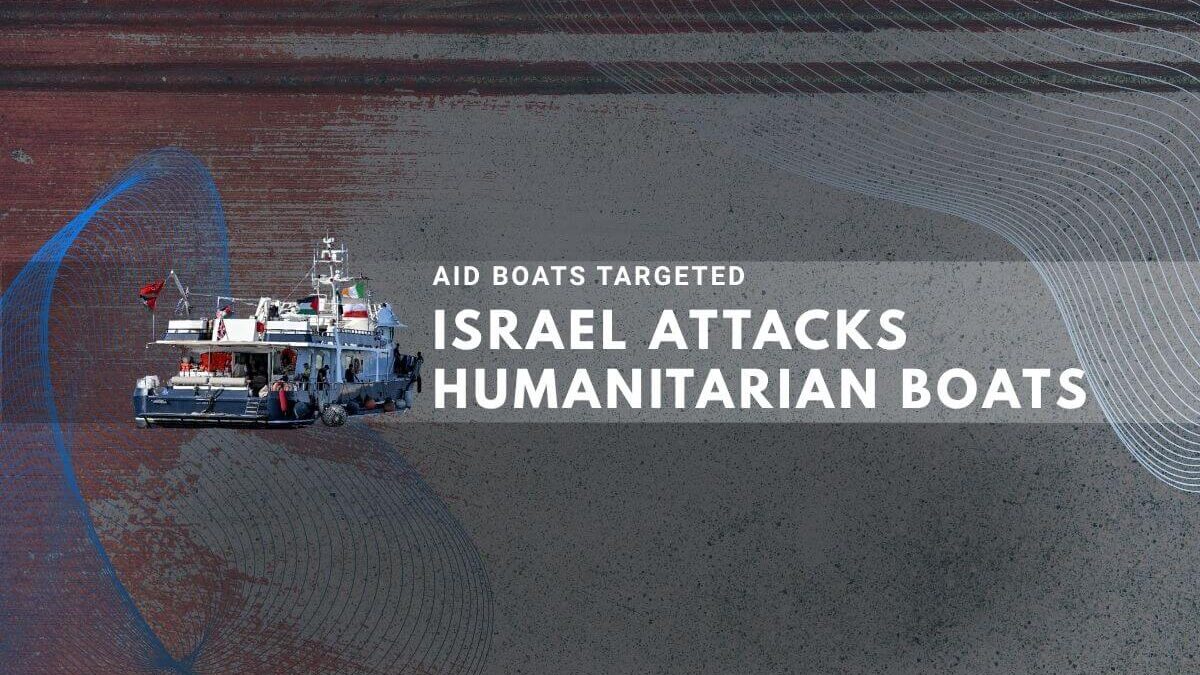Israeli Prime Minister Benjamin Netanyahu authorized drone strikes on two civilian aid vessels off Tunisia on September 8 and 9, 2025. The Portuguese-flagged Family and British-flagged Alma, part of the Global Sumud Flotilla carrying medical supplies and food to Gaza, were hit by incendiary devices. No injuries were reported, and fires were quickly contained. These operations may violate international humanitarian law.[1]
Background Israeli Prime Minister
Israel has enforced a naval blockade of Gaza since January 2009. The Global Sumud Flotilla, organized by international activists, seeks to challenge this blockade by delivering aid directly to Gazan ports.[2]
Details of the Attacks
On September 8, a drone reportedly launched from a submerged platform dropped an incendiary device onto the deck of the Family near Sidi Bou Said, igniting a fire that was extinguished within minutes. A similar strike targeted the Alma on September 9, causing fire damage but no casualties.[1]
Legal Framework
The 1980 Protocol on Incendiary Weapons prohibits use of fire-inducing munitions against civilian objects at all times. Customary international humanitarian law also forbids targeting noncombatant vessels in conflict zones.[3]
Conflicting Accounts
- Flotilla Footage: Onboard cameras show bright projectiles descending onto both decks, with no internal explosion or flare gun activity recorded.[4]
- Tunisian Inspection: Tunisian authorities initially reported that fires appeared to originate inside the vessels, possibly from a discarded cigarette.[5]
- Alternate Theories: Some pro-Israel commentators alleged a misfired flare caused the blaze, though no flare-gun footage exists and none is visible in released videos.[5]
Subsequent Flotilla Incidents
On September 23, the flotilla reported low-altitude drone flyovers south of Greece. Explosions damaged ten vessels and disrupted communications, but no injuries occurred.[1]
Interception and Detention
In early October, the Israeli navy intercepted remaining flotilla ships in international waters near Gaza. Detainees included Greta Thunberg, several European lawmakers, U.S. Marine Corps veteran Jessica Clotfelter, and organizer Greg Stoker. The U.S. State Department is providing consular support.[1]
Humanitarian Impact
The flotilla carried humanitarian cargo—medical equipment, food rations, and clean water—destined for Gaza’s civilian hospitals and displaced families. Gaza faces severe shortages, with UN agencies reporting critical depletion of medical supplies.[2]
International Response
United Nations agencies and human rights organizations condemned the attacks on civilian aid vessels and called for independent investigations to ensure accountability and safeguard future relief efforts.[2][1]



